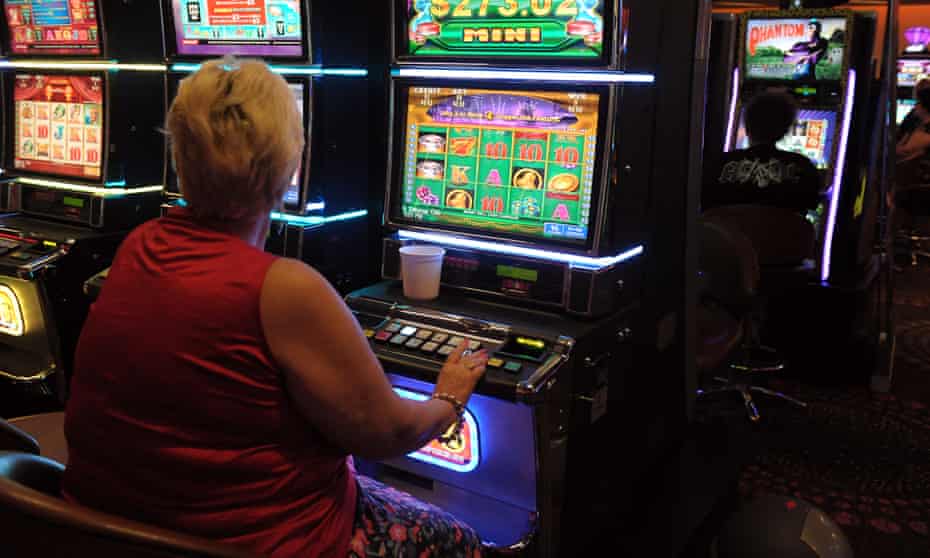Cashing in: the gambling industry writes the rules and sways Tasmania’s elections
Bill before state’s upper house has ‘been literally written by industry’, an independent MP says


Tasmania became the first state in Australia to open a casino in 1973, and since then, it has become a place in which the gambling lobby’s influence on Australian politics is at its most bald-faced.
Now, a bill about to head through Tasmania’s upper house has brought that influence into the open.
The bill would mark the end of a monopoly on gambling licences in Tasmania held by Federal Group – a company owned by the Sydney-based Farrell family who are worth $564m – since it established that first casino. The Liberal state government argues the legislation will deliver an additional $8.5m a year in state revenue for essential services and community needs, at the expense of Federal Group.
But critics say the Gaming Control Amendment bill is a missed opportunity for reform in a state where gaming interests have long held sway and which has one of the highest levels of gambling harm. Tasmanians as a whole lose an average of $15.5m every month to poker machines.
“This opportunity in Tasmania is unique,” Meg Webb, an independent upper house MP, says. “We should be grasping with both hands this opportunity to do everything we can to regulate this industry effectively.”
“No other state in Australia has this chance, and we’re utterly blowing it.”
Negotiations crash into the open
For decades, the political deals between Federal Group and the Tasmanian government were shrouded in secrecy. But when details of the controversial arrangement were exposed in 2015, the government committed to put the licences to tender.
A joint parliamentary committee was set up to investigate. At the 11th hour, the Tasmanian Hotels Association (THA), which represents the state’s pubs and clubs, and Federal Group put forward a joint submission proposing, among other things, a model that raised the tax on pub pokies but slashed them drastically on casino pokies – by far the most lucrative – from 25.88% of gross profit to 10%.
The proposal was slammed by independent assessors and by the Tasmanian Liquor and Gaming Commission, which argued that it would not provide greater protection for vulnerable people from pokies use or increase regulatory compliance.
Industry flexes its muscles
In an extraordinary pivot, the government abandoned its policy and adopted the industry’s position wholesale – taking it to the 2018 state election, but staying mum on one crucial detail: the value of the casino tax cut. When Labor took an anti-gambling policy to the same election, the national gaming industry converged on it in a startling display of power – directly bankrolling the Liberal Party’s campaign and funding its own separate advertising blitz.
Labor lost, and dumped their anti-pokies policy. When the 2021 election rolled around neither of the major parties wanted to talk about pokies – especially not the intended casino tax rate. Then a memorandum of understanding between the Labor Party and the THA was leaked, signed prior to this year’s election, showing that Labor had effectively capitulated to the industry, giving the THA the power of veto over its pokies policies. A Right to Information request from Webb also uncovered evidence that the casino tax rate had been agreed upon between the government and Federal Group well before the 2021 election, but kept secret until after it. The figure was 10.19%: the industry got exactly what it wanted.
That tax cut represents $119m in lost revenue over the 20-year life of the proposed licence. Were casino pokies to be taxed at the same rate as pubs, the state could yield $248m in public revenue. And revenue is needed: Tasmania is falling behind in a number of socioeconomic measures. Social housing waitlists are longer than they have ever been.
‘Breakdown of the democratic process’
Tasmanian historian James Boyce, who has spent years investigating the links between the gaming lobby and the government, says the problem is a failure of democracy.
“The situation in Tasmania exposes the fact that the depletion of our public services is directly connected with the vulnerability of our democracy and breakdown of the democratic process,” Boyce says.
Anti-pokies campaigners say that 40% of losses from poker machines come from high-risk gamblers. The easiest measure of an effective harm minimisation effort, then, is reduced revenue. That doesn’t necessarily mean all pokies revenue is jeopardised: measures proven to reduce the harm on gambling addicts – such as $1 bet maximums and doubling of machine spin speeds from 3 to 6 seconds (thereby halving the speed at which a punter can make a new bet) – are also shown to have no effect on revenue from recreational gamblers. None of these measures form part of the proposed legislation.
Better than the status quo?
The bill finally passed through the lower house of Tasmanian parliament in late October. Labor MP Dean Winter said the party supported it because it ended Federal Group’s monopoly and was an improvement on the status quo. “By voting with the bill we vote for a piece of legislation that we wouldn’t have proposed, but something that we fundamentally believe is better than the current arrangements,’’ he said.
The Greens and a lower-house independent, Kristie Johnston, disagreed. Dozens of amendments were proposed and voted down.
All signs point to the government’s intention to ram the bill through the upper house this week. Critics say the best outcome now would be an upper house inquiry allowing controversial elements of the bill to be scrutinised, but this would require support from Labor.
“When the government’s policy has been literally written by industry, you would look to the opposition to be true representatives of their community, but the Labor opposition has also been captured by this industry and compromised,” Webb says.
“The issue is actually not just poker machines, it’s about our democracy. Low-income people in Tasmania pay the price of this failure of democracy. This is easily preventable suffering,” says Boyce. “This is a major taxation measure and it’s locking in enormous levels of social harm.”

